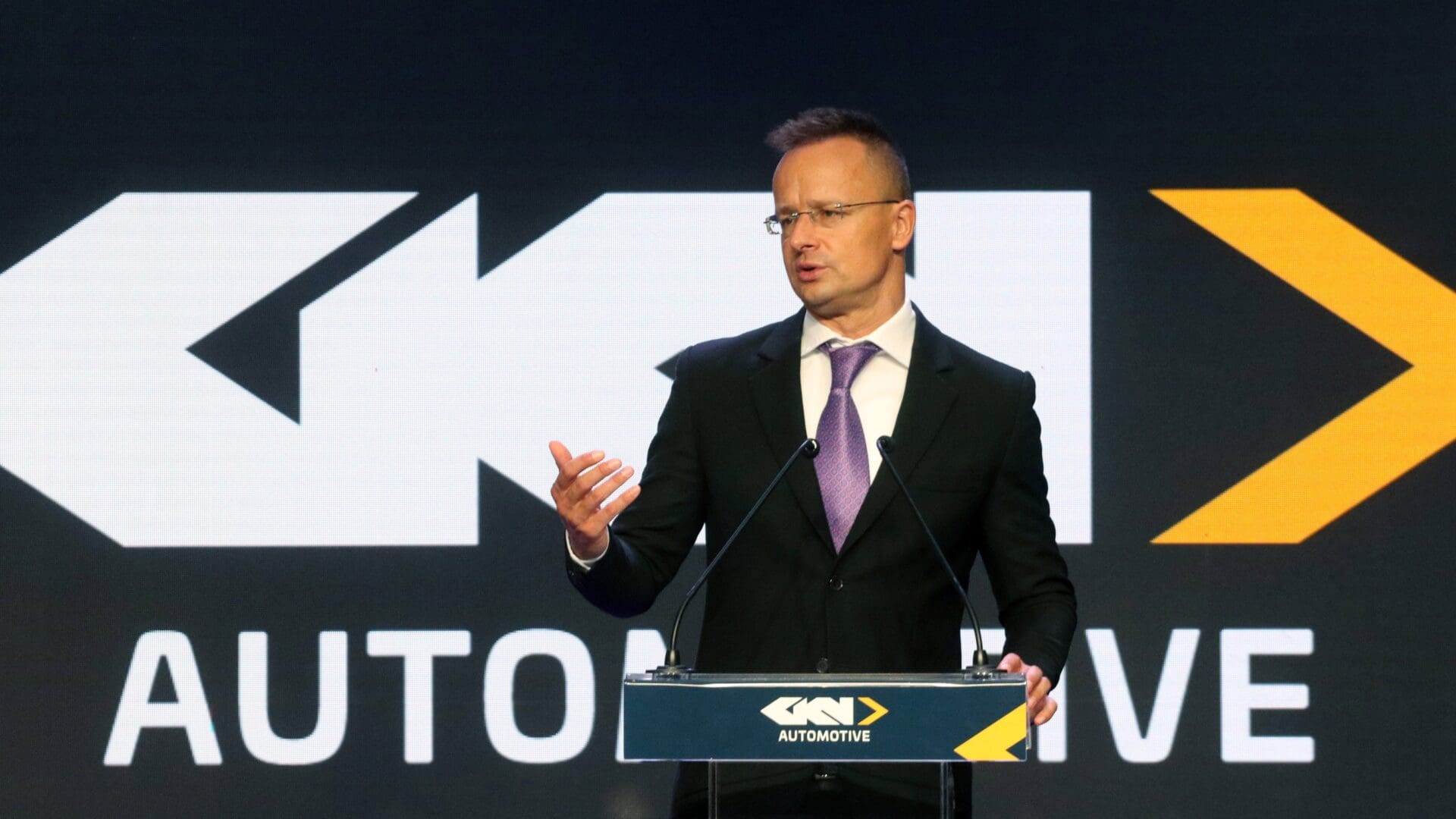With approximately 52 billion forints in investment, GKN, one of the world’s largest automotive suppliers, will create 1,500 jobs in Felsőzsolca, Borsod-Abaúj-Zemplén County, Hungary as announced by Minister of Foreign Affairs and Trade Péter Szijjártó, on-site on Friday, 8 September.
According to the ministry’s statement, during the inauguration of the British-owned GKN Automotive Hungary Ltd. factory, the minister highlighted that the company, specializing in manufacturing automotive components, will serve BMW, Mercedes-Benz, Suzuki, and Volkswagen through the newly built facility within the framework of the approximately 52-billion-forint greenfield investment.
He informed all that, as a result of this project, 200 new jobs could be created this year, and
with the completion of the second phase by the end of 2026, a total of 1,500 new workers will be hired.
The state will provide support for the investment, the exact amount of which will be disclosed later upon approval by the European Commission.
Szijjártó emphasized that there was strong international competition for this securing investment, which Hungary won, further strengthening the country’s position in the global automotive industry. He pointed out that, despite the challenges of today, the unstoppable transformation process in the automotive industry presents a tremendous opportunity for Hungary. However, it also presents an important task for the government, namely, to attract as many significant investments as possible. ‘Hungary wants to be among the winners in the new era, and we also want the investors coming here to feel like winners,’ he stated.
He went on to highlight that the automotive industry has long been the backbone of the Hungarian economy.
The sector’s production value reached the dream threshold of 10 trillion forints for the first time last year,
and the momentum appears to be continuing.
‘We also know that the automotive industry has to achieve this fantastic result in extremely challenging conditions, as environmental regulations and requirements are becoming increasingly stringent,’ Minister Szijjártó noted. He also mentioned that British companies employ more than 50,000 people in Hungary, and bilateral trade volume with the country approached €6 billion last year.
Zoltan Kovacs on Twitter: “FM Szijjártó: Hungary’s @GKN__Automotive will create 1500 jobs in Felsőzsolca. The facility will serve BMW, Mercedes-Benz, Suzuki, and Volkswagen. Initial hiring for 200 jobs will happen this year, and by the end of 2026, 1500 positions will be established. The government will… pic.twitter.com/cBuAQHrMcz / Twitter”
FM Szijjártó: Hungary’s @GKN__Automotive will create 1500 jobs in Felsőzsolca. The facility will serve BMW, Mercedes-Benz, Suzuki, and Volkswagen. Initial hiring for 200 jobs will happen this year, and by the end of 2026, 1500 positions will be established. The government will… pic.twitter.com/cBuAQHrMcz
The minister stated that the European Union is currently facing its most severe economic challenges yet.
‘And since Hungary is deeply integrated into the European economy, such a situation evidently poses serious challenges for us, Hungarians. Nevertheless, the Hungarian economy not only survived the crises we left behind, but also managed to strengthen and remain on a growth trajectory,’ he said.
As an example, he cited that in the crisis-ridden year of 2022, Hungary broke records in terms of investments, exports, and employment. ‘Never before have so many people been employed as last year,’ he pointed out. ‘Peaks are meant to be conquered,’ he said, adding that by the end of the year, the value of investments could reach €13 billion, double that of the previous year.
‘In the first half of this year, our exports already showed a 10 per cent growth, and the investments that have come to Hungary so far have created 11,000 new jobs, a 50 per cent increase compared to last year,’ Minister Szijjártó concluded.
Related articles:
Source: Hungarian Conservative/KKM/MTI








